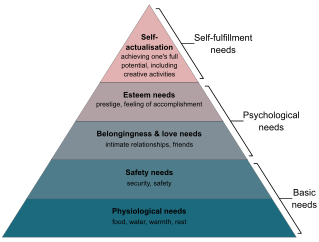Low self-esteem = the presence of shame
- 23 November 2020
- Posted by: Michael H Hallett
- Category: Emotional principles , Shame ,

I’ve spent years trying to raise my self-esteem. Meditations, affirmations, incantations—all tried and failed. The reason they failed is simple. Low self-esteem is an indicator of the presence of shame.
What is self-esteem?
Self-esteem, or self-worth, is a phrase that gets bandied about a lot in personal development, emotional healing and spiritual growth circles.
Wikipedia describes it as “an individual’s subjective evaluation of their own worth. Self-esteem encompasses beliefs about oneself (for example, ‘I am unloved’, ‘I am worthy’) as well as emotional states, such as triumph, despair, pride, and shame.”
That last word is telling—and we’ll return to it.
Why is my self-esteem low?
According to Wikipedia, E.R. Smith and D.M. Mackie define self-worth as “the positive or negative evaluations of the self.”
Here, the word ‘evaluations’ pops out. An evaluation is always against some kind of achievement or desired standard. What is being measured here that causes us to feel ‘I am unloved’ or ‘I am worthy’?
It’s a measurement against the societal standards of patriarchy. These standards encompass power, wealth, prestige, status, and much more besides. They include race, class, caste, religion and any other line of demarcation or differentiation.
Patriarchal standards include legitimacy, illegitimacy and other definitions of positive or negative family standing and lineage.
They include being married and having children, the means by which patriarchy propagates. They include rules on social and, in particular, sexual behaviour.
We all measure ourselves against these standards—all the time, unconsciously. The more sensitive we are—the more we’re aware of the ways in which we don’t measure up—the lower our self-esteem.
Low self-esteem is shame
The general impression of self-esteem is that it’s something everybody should have. But, for the reasons I’ve given above, many people experience low self-esteem, sometimes to a crippling extent.
Martin Ross proposes a classification of shattered, vulnerable or strong. Many of us are, at best, in the vulnerable category.
So we embark on a course of ‘topping up’ our self-esteem, of finding this magical elixir from somewhere and making ourselves feel better about ourselves.
But it doesn’t work. No matter how much we do to find, fix or replace our missing self-esteem, it doesn’t work. I spent years in this loop, trying different techniques for increasing my self-esteem.
And then the penny dropped.
Low self-esteem is shame. It is the shame of not measuring up to unconscious, invisible societal standards. It is a presence, not an absence.
Low self-esteem is shame. It is the shame of not measuring up to unconscious, invisible societal standards. It is a presence, not an absence. To increase self-esteem we must undo, not do.
Hierarchy of needs
In Abraham Maslow’s hierarchy of needs, esteem is placed in the second tier, the higher psychological needs, above basic needs but below self-fulfilment.

Maslow’s theory is that each level of the pyramid must be satisfied (actualised) before we can progress to the next level.
When we understand lack of esteem as the presence of shame, it’s evident that Maslow’s pyramid is correct. Shame may undermine us as we strive to meet our physiological needs, safety needs, and our need for belonging and love. But to go beyond, to self-actualisation, we must free ourselves of unconscious shame.
No amount of affirmations or breathing in worth can improve things. You must go into the darkness, feel the shame, and release it.
Photo by Ava Sol on Unsplash
